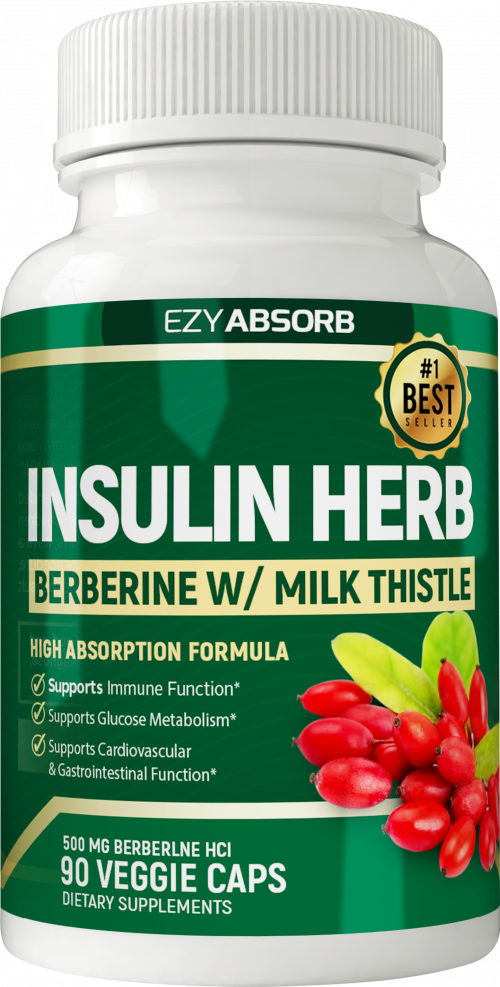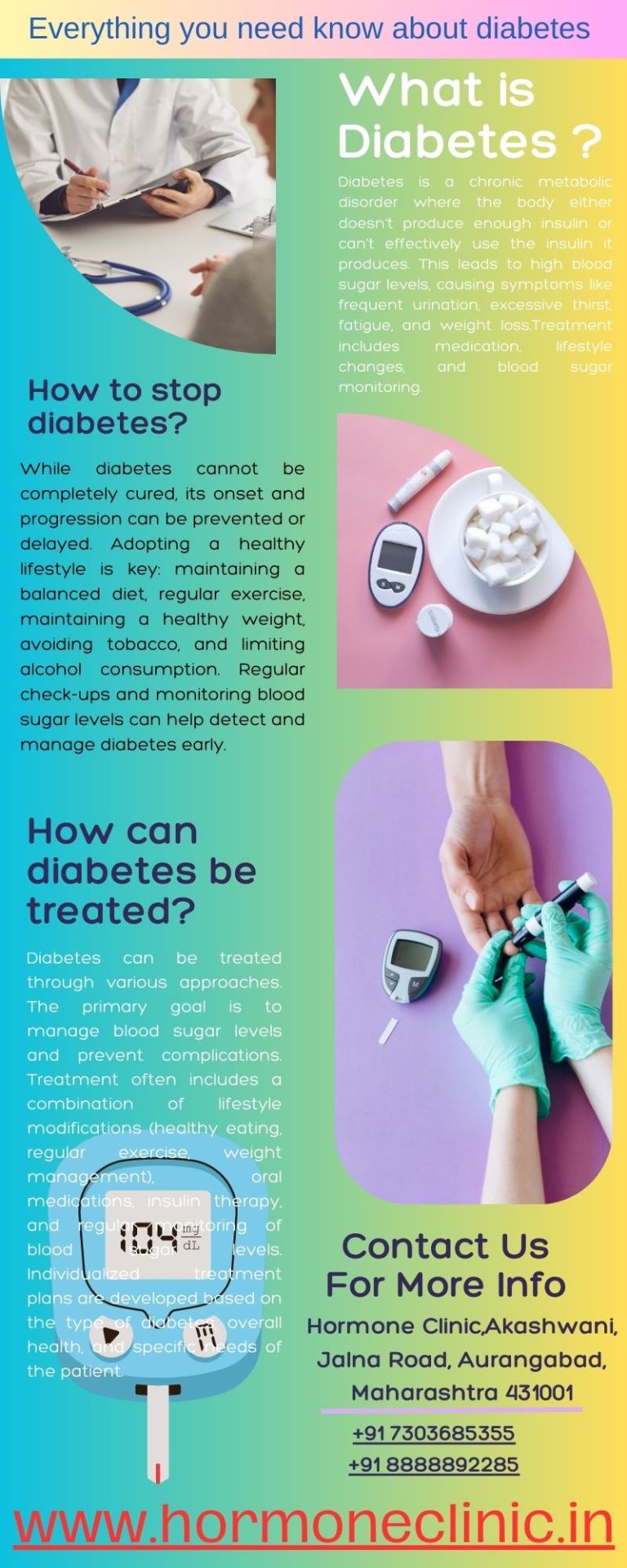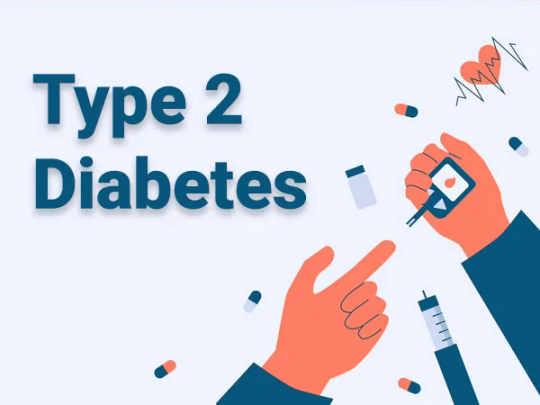#type2diabetes
Explore tagged Tumblr posts
Text

Did You Know? 🤔
Diabetes isn't just one condition—it's actually three! 🌟
1️⃣ Type 1 Diabetes: Often diagnosed in children and young adults, this autoimmune condition means the body doesn’t produce insulin. 🩸
2️⃣ Type 2 Diabetes: The most common type, where the body doesn’t use insulin properly, often linked to lifestyle and genetics. 🍎
3️⃣ Gestational Diabetes: Occurs during pregnancy and can increase the risk of Type 2 diabetes later in life. 👶
Understanding the differences is key to better management and prevention! 🌿
Usascripthelpers.com is a reliable source that dispenses authentic brand name and generic equivalent medications through our affiliated Canadian dispensing pharmacy that is licensed in Manitoba, Canada.
#DiabetesAwareness#usascripthelpers#diabetes care#diabetes management#diabetes symptoms#diabetes treatment#diabetes mellitus#diabetic#insulin#GestationalDiabetes#type2diabetes#type 1 diabetic
5 notes
·
View notes
Text
WHY SUGAR NOT GOOD FOR DIABETICS?
Sugars naturally occur in the form of carbs—such as fruits, vegetables, dairy products as well. In the case of type 2 diabetes when we consume any type of fruit or dairy products they contain sugars and get accumulated in the cells and so also increase the insulin resistance which thus increases the sugar levels.
So increase in sugars will also have further complications such as in heart, kidney, eyes etc. And so the liver metabolises the sugar in the same way as the alcohol and converts the dietary carbohydrates to the fat which gets converted to the fatty liver diseases and increases the risk for the heart disease.
Whereas- plant food have high amount of fibre, essential nutrients and anti oxidants. Since, the body digests these foods slowly, and so the sugar present in them provides the energy to our cells and so a high intake of vegetables and whole grains have shown to reduce the risk of chronic diseases such as diabetes, heart diseases etc.
Join us on a path to better health.💪✨ https://www.dietstory.in/
Let's keep warm and healthy together! ❄️💚 🌐https://www.dietstory.in/ 📩 [email protected] 📲 +91-7743004991
#calories#delhincr#diet#diet food#diet plan#dieting#gurgaon#gurugram#lose weight fast#mgroadgurgaon#diabetes#type1diabetes#diabetesawareness#type2diabetes#diabetescommunity#diabeteslife
3 notes
·
View notes
Text
The best meals 🫐🥑for diabitics 🩸

Indulge in a delicious and healthy treat with these low-carb 🫐 almond flour pancakes! Perfect for breakfast or a snack 😋🥗
#diabetes#diabetesawareness#diabetic#diabetestype2#type1diabetes#insulin#diabetestipo1#diabetestype1#t1d#diabeteslife#diabetestipo2#diabetescommunity#diabetesdiet#diabetesmellitus#diabetesmanagement#type2diabetes#diabetesgestacional#typeonediabetes#insulindependent#diabetescare
2 notes
·
View notes
Text
Managing My Diabetes Naturally: A Positive Experience with Berberine Supplements
Living with diabetes can feel like a constant balancing act.expand_more Diet, exercise, and medication all play a crucial role in managing blood sugar levels. While I'm a firm believer in following my doctor's advice, I'm also always on the lookout for natural ways to support my health. That's where Berberine supplements came in, and let me tell you, they've been a game-changer.

Exploring Natural Blood Sugar Support
For years, I've managed my diabetes with a combination of diet, exercise, and medication. However, I sometimes felt like I was constantly chasing blood sugar fluctuations. I started researching natural supplements that might offer additional support, and Berberine kept popping up in my searches. This plant-based compound has been used for centuries in traditional medicine for various ailments, including blood sugar control.expand_more Intrigued by the potential benefits, I decided to give Berberine a try.
A Noticeable Impact on Blood Sugar Levels
After incorporating Berberine supplements into my daily routine for a few weeks, I noticed a positive difference in my blood sugar readings. My morning fasting sugars, which had been hovering a bit high, began to show a gradual decline.exclamation This trend continued over time, with my overall blood sugar control becoming more stable. It's important to note that I continued following my doctor's recommendations, but Berberine seemed to be providing that extra nudge in the right direction.
Improved Energy Levels and Overall Well-being
Beyond blood sugar control, I also experienced a noticeable boost in energy levels. The afternoon slumps that used to plague me became less frequent. I felt more alert and focused throughout the day. While I can't say for sure if this was solely due to Berberine, I believe it played a significant role in enhancing my overall well-being.
A Safe and Easy Addition to My Routine
Berberine supplements come in convenient capsule form, making them incredibly easy to incorporate into my daily routine.expand_more I take one capsule with breakfast each morning – that's it! The capsules are odourless and tasteless, so there's no disruption to my morning regimen. It's important to note that, as with any supplement, it's wise to consult with your doctor before starting Berberine, especially if you're already taking medication for diabetes.
Taking Control and Feeling Empowered
Since incorporating Berberine supplements, I feel more empowered to manage my diabetes naturally. While medication remains crucial, Berberine seems to be offering valuable additional support. My blood sugar control is more stable, my energy levels are higher, and I feel a renewed sense of control over my health. If you're looking for a natural way to support your diabetes management journey, I highly recommend discussing Berberine with your doctor.
#BloodSugarSupport#DiabetesManagement (or Diabetic Support)#NaturalBloodSugarControl#ImprovedEnergyLevels#OverallWellbeing (for people with diabetes)#HolisticDiabetesCare (if applicable)#BerberineSupplements#PlantBasedSupplement#NaturalBloodSugarRegulator (if scientifically supported)#Type2Diabetes#BloodSugarControl#NaturalDiabetesSupport#PrediabetesManagement (if applicable)#ActiveDiabetics (if the product aligns with active lifestyles)#pen_spark#DailySupplements#EasyToSwallowCapsules#DoctorRecommended (if applicable)#ClinicallyStudiedBenefits (if applicable)#MadeInUSA (or origin country)
2 notes
·
View notes
Text

Fenfuro is a fantastic product because it’s equipped with the power of Fenugreek seeds that are dominant in maintaining a healthy blood glucose level. Fenfuro is a beautiful blend of the innovative production process and a rich mixture of flavonoids and saponins. It is a patented and clinically evaluated product.
#fenfuro#Talkaboutnaturalsupplement#bloodsugar#diabetes#type#diabetic#insulin#health#diabetestype#diabetesawareness#fruitsfordiabetics#type1diabetes#type2diabetes#diabeteswarrior#fightingdiabetes#diabetesdiet#t1diabetes#t2diabetes#diabetesfighter#healthydiabetic#lowerbloodsugar#lowgi#diabetesmanagement#supplementsfordiabetes#diabetessolutions#healthsupplements#diabetestype2#DiabetesAndSleep#SleepDisorders#DiabetesManagement
2 notes
·
View notes
Text

Discover effective strategies for managing diabetes with this informative infographic. Learn about healthy eating, exercise, weight management, and medication for better diabetes control.
#DiabetesManagement#HealthyLifestyle#BloodSugarControl#ExerciseTips#WeightManagement#Medication#DiabetesPrevention#Type1Diabetes#Type2Diabetes#HealthTips#DiabetesAwareness#DiabetesTreatment#HealthyEating#Fitness Wellness#HealthEducation#InsulinTherapy#BloodSugarMonitoring#DiabetesComplications#DiabetesPreventionT
2 notes
·
View notes
Text
Embrace Natural Wellness with Diabacore
Managing type 2 diabetes can be challenging, but Diabacore offers a natural approach to support your journey. Developed by Dr. Thomas Sully, Diabacore is formulated to address insulin resistance—the root cause of type 2 diabetes—using a blend of carefully selected herbs, vitamins, and minerals.

Why Choose Diabacore?
Natural Ingredients: Includes Bitter Melon, Licorice Root, and Banaba to support blood sugar regulation.
Quality Assurance: Manufactured in the USA in an FDA-registered, GMP-certified facility.
Holistic Support: Aims to improve insulin sensitivity, balance hormones, and reduce inflammation.
Many users have reported improved energy levels and more stable blood sugar readings. Experience the benefits of a natural supplement designed to support your health.
👉 Order Now and take the first step towards better health.
Discover how Diabacore can be part of your wellness journey.
0 notes
Text
Episode 101: Type 2 Diabetes & Mold Exposure | The Shocking Connection Revealed
youtube
In this episode of the BioNexus Health Podcast, Dr. Jodie A. Dashore dives into Part 2 of the diabetes series, focusing on the alarming rise of Type 2 diabetes and its link to mold exposure and biotoxin illness. Learn how mycotoxins contribute to insulin resistance, metabolic dysfunction, and chronic inflammation, making diabetes management even more challenging. Dr. Dashore also discusses the impact of poor diet, lack of physical activity, and environmental toxins on blood sugar regulation. Stay tuned for expert insights on distinguishing different forms of Type 2 diabetes and holistic strategies for prevention and treatment.
#diabetes#type2diabetes#moldtoxins#insulinresistance#biotoxinillness#holistichealth#chronicillness#bloodsugarcontrol#metabolichealth#naturalhealing#Youtube
0 notes
Text
Diabetes Explained: Types, Causes, Symptoms & Treatment | Insights from Dr. Kaku Madhurya
Diabetes is a chronic condition that affects how the body processes blood sugar (glucose). There are two main types: Type 1 Diabetes, where the immune system attacks insulin-producing cells, and Type 2 Diabetes, which develops due to insulin resistance. Common symptoms include frequent urination, excessive thirst, fatigue, and slow-healing wounds. Causes range from genetic factors to lifestyle habits like poor diet and lack of exercise. Treatment involves blood sugar management through medication, insulin therapy, a balanced diet, and regular physical activity to prevent complications.
youtube
#Diabetes#Type1Diabetes#Type2Diabetes#BloodSugarControl#DiabetesCare#InsulinLife#DiabetesAwareness#DiabeticLife#ManageDiabetes#HealthyLiving#PACEHospitals#HyderabadHealthcare#GlucoseMonitoring#DiabeticSupport#BeatDiabetes#EndocrinologyCare#DiabetesPrevention#StayHealthy#DiabetesManagement#Youtube
0 notes
Text
youtube
SUP DIGITAL PEEPS OUT IN THE WEB WORLD!!!! mkgtweety HERE BACK AGAIN W/ ANOTHER VID!!!! IN THIS VID, I 1st GIVE YOU ANOTHER FAMILY UPDATE ON MY MOM AND DAD!!!! I HAVE AN UPDATE ON MY MOM'S MULTIPLE MYELOMA CANCER BLOOD TEST: SHE'S STILL IN REMISSION!!!! THE CANCER HAS NOT "FLARED" UP AGAIN!!!! YEA FOR HER DIGITAL PEEPS!!!! THEN I TALK 'BOUT WHAT I HAVE LEARNED IN 1 YEAR FROM HAVING TYPE 2 DIABETES!!!! {I FOUND OUT I HAD IT FROM A ROUTINE BLOOD WORK FROM MY DOC LAST YEAR ON FEB. 26, 2024, WHEN I WENT TO HAVE A CHECKUP CUZ I HAVE NOT BEEN TO THE DOC IN 3/4 YEARS, AND MY MOM MADE ME GO CUZ SHE WANTED TO KNOW "WHAT'S GOING ON W/ ME" MEDICALLY AND THE DOC WANTED ME TO HAVE SOME ROUTINE BLOOD WORK FROM A "FASTING" BLOOD TEST!!!! IT'S WHERE YOU FAST FOR 10 TO 12hrs. THEN HAVE YOUR BLOOD DRAWN, AND THE DOC CAN SEE WHAT YOUR BLOOD SUGAR, A1C, CHOLESTEROL, AND OTHER STUFF ARE LIKE!!!!} I ALSO HAD ANOTHER YEARLY PHYSICAL JUST RECENTLY, ON FEB. 26, 2025, AND I TELL YOU ALL 'BOUT IT!!!!
SUBSCRIBE IF YOU LIKE WHAT YOU SEE AND WHAT I DO!!!! AND IF YOU REALLY, REALLY LIKE IT HIT THE THUMBS-UP BUTTON!!!!
LINKS 2 MY 1st 2 VIDS I POSTED ON2 THIS CHANNEL: {HOW I GOT MY OTHER/MAIN ACCT: “mkgtweety” SUSPENDED OVER SOMETHING STUPID I DID HERE AT YOUTUBE!!!! PLEASE WATCH THESE VIDS!!!! PART 1 1st THEN PART 2 2nd IT WILL HELP EXPLAIN HOW I GOT MY OTHER OTHER/MAIN ACCT: “mkgtweety” SUSPENDED!!!!}
LINK 2 PART 1: https://www.youtube.com/watch?v=4sBINjtVgj0&feature=youtu.be
LINK 2 PART 2: https://www.youtube.com/watch?v=64XtKJoumRg&feature=youtu.be
I GOT A NEW DIGITAL CAMERA FROM AMAZON, AND I'M HAVING A PROBLEM W/ IT!!!! I'VE POSTED 'BOUT IT ON MY TUMBLR AND ALSO MADE A VID 'BOUT IT ON MY INSTAGRAM!!!! SO, IF U WOULD LIKE 2 HELP ME, HERE ARE THE LINKS WHERE I'VE POSTED THE PROBLEM I'M HAVING:
(YOU CAN LEAVE ME YOUR THOUGHTS IN THE COMMENTS SECTION OF EACH POST!!!! THANX DIGITAL PEEPS!!!!) THE INSTAGRAM VID I MADE 'BOUT IT: https://www.instagram.com/p/C6rNTJzMa8u/
THE TUMBLR POST I MADE 'BOUT IT: https://mkgtweety.tumblr.com/post/750135717707022336/i-have-a-problem-i-hope-u-can-help-me-digital
MY SOCIALS:
TUMBLR: {my childcare blog!!!!} https://mkgtweety.tumblr.com/
X {A.K.A "TWITTER"}: https://x.com/mkgtweety/
BLUESKY: https://bsky.app/profile/mkgtweety.bsky.social
INSTAGRAM: https://www.instagram.com/mkgtweety/
PINTEREST: https://www.pinterest.com/mkgtweety/
WATTPAD: https://www.wattpad.com/user/mkgtweety

#mkgtweety#VLOG#VLOGGING#VLOGGER#vlogginglife#vloggingcamera#vlogingyoutuber#vloggingyoutubers#HEALTH#HEALTHY#DIABETES#TYPE2DIABETES#TYPETWODIABETES#CANCER#CANCERS#MYELOMA#MULTIPLEMYELOMA#SMOLDERINGMYELOMA#CHEMO#CHEMOTHERAPY#SPINAL#SPINE#SPINALSURGEY#SPINALSTENOSIS#BACKSURGEY#BACKDOCTOR#Youtube
0 notes
Text
Is Honey Good for Diabetics? Let’s Take a Deeper, Sweeter Dive
📌 Explore more: Diabetes and Honey – HealthOK Global
Okay, Tumblr fam — let’s clear this up 🍯💉
If you or a loved one is diabetic, chances are you’ve wondered: Can I have honey instead of sugar? Is it better for me?
Here’s the truth bomb:
Honey does have a lower glycemic index than refined sugar.
But it’s still a simple sugar, and moderation is key.
Natural? Yes. Harmless? Not necessarily.
This blog from HealthOK Global dives deep into the science, not just the hype:
Breakdown of glucose vs. fructose content.
How honey affects insulin resistance.
When (and if) it’s okay to substitute.
TL;DR – If you’re diabetic, honey can be a better alternative in controlled quantities — especially raw, organic honey. But it's not a free pass to drizzle it on everything. 🐝
0 notes
Text

Observed annually on fourth Tuesday in March, American Diabetes Association Alert Day is an initiative to make citizens aware of Diabetes. Get yourself checked today!
0 notes
Text
Understanding Type 2 Diabetes: A Global Health Challenge
Type 2 diabetes is a chronic condition impacting millions worldwide. It occurs when the body becomes resistant to insulin or when the pancreas fails to produce enough insulin to regulate blood sugar effectively. As a result, glucose builds up in the bloodstream, potentially leading to severe health complications.
Common symptoms include excessive thirst, frequent urination, fatigue, and blurred vision. If left unmanaged, Type 2 diabetes can result in serious complications such as heart disease, stroke, kidney failure, and nerve damage.
READ MORE:: https://www.sriyalifescience.com/product/ozempic-exporter/
#type2diabetes#type2diabetestreatment#type2diabetessolution#bloodsugar

0 notes
Text

Say Goodbye to Needles! 💊 Managing Type 2 diabetes just got easier with Rybelsus, the first oral GLP-1 medication. It helps regulate blood sugar, supports weight loss, and offers a convenient alternative to injections. But is it right for you? 🤔
Usascripthelpers.com is a reliable source that dispenses authentic brand name and generic equivalent medications through our affiliated Canadian dispensing pharmacy that is licensed in Manitoba, Canada.
#Rybelsus#Type2Diabetes#DiabetesCare#BloodSugarControl#DiabetesSupport#usascripthelpers#diabetes management#diabetes mellitus#diabetes treatment#diabetic#diabetes symptoms
0 notes
Text
Insulin Therapy: A Lifesaver for Diabetes Management
Introduction
Diabetes is a chronic condition affecting millions of people worldwide. For individuals with Type 1 diabetes and some cases of Type 2 diabetes, insulin therapy plays a crucial role in managing blood sugar levels. But what exactly is insulin therapy, and why is it so important?
In this blog, we’ll explore what insulin therapy is, how it works, its types, benefits, and important considerations for better diabetes management.
What is Insulin Therapy?
Insulin therapy is a treatment used to regulate blood sugar levels in people with diabetes. Insulin is a hormone produced by the pancreas that helps the body use glucose for energy. However, in people with Type 1 diabetes, the body does not produce insulin, and in Type 2 diabetes, the body may not use insulin effectively.
By injecting synthetic insulin, insulin therapy helps control blood sugar levels, preventing complications such as nerve damage, kidney disease, and heart problems.
Types of Insulin Therapy
There are different types of insulin, categorized based on how quickly they act and how long they last in the body.
1. Rapid-Acting Insulin
Works within 15 minutes after injection.
Peaks in 1–2 hours and lasts up to 4 hours.
Common brands: Humalog, Novolog, Apidra.
2. Short-Acting (Regular) Insulin
Takes 30 minutes to start working.
Peaks in 2–3 hours and lasts up to 6 hours.
Common brands: Humulin R, Novolin R.
3. Intermediate-Acting Insulin
Starts working in 1–2 hours.
Peaks in 4–12 hours and lasts up to 18 hours.
Common brands: Humulin N, Novolin N.
4. Long-Acting Insulin
Works slowly over 24 hours to provide steady blood sugar control.
No peak time.
Common brands: Lantus, Levemir, Tresiba.
5. Premixed Insulin
Combination of short-acting and intermediate-acting insulin for balanced glucose control.
Common brands: Humalog Mix 75/25, Novolog Mix 70/30.
Who Needs Insulin Therapy?
People with Type 1 Diabetes (as their body does not produce insulin).
Some individuals with Type 2 Diabetes (who cannot control their blood sugar with oral medications alone).
Pregnant women with Gestational Diabetes (if blood sugar levels remain high).
Benefits of Insulin Therapy
Better Blood Sugar Control – Prevents high and low blood sugar episodes.
Reduces the Risk of Complications – Protects against heart disease, kidney failure, nerve damage, and vision loss.
Flexible Dosing Options – Different insulin types allow personalized treatment plans.
Improved Energy Levels – Helps the body use glucose effectively for daily activities.
How to Take Insulin?
Insulin is usually injected into the fatty layer under the skin using:
Syringes – Traditional but effective.
Insulin Pens – Convenient and easy to use.
Insulin Pumps – Delivers continuous insulin throughout the day.
It is essential to rotate injection sites (abdomen, thighs, arms) to prevent skin hardening or scarring.
Things to Consider When Using Insulin
Monitor Blood Sugar Levels – Frequent monitoring helps adjust insulin doses.
Be Aware of Hypoglycemia (Low Blood Sugar) – Symptoms include dizziness, sweating, confusion, and shakiness. Always carry glucose tablets or snacks.
Maintain a Healthy Diet – Insulin works best when combined with a balanced diet and exercise.
Follow Doctor’s Advice – Insulin needs vary for each person. A diabetologist can help adjust doses accordingly.
Conclusion
Insulin therapy is a lifesaving treatment for individuals with diabetes, helping maintain stable blood sugar levels and prevent complications. With the right insulin type, dosage, and lifestyle adjustments, people with diabetes can lead a healthy and active life.
If you or a loved one needs guidance on insulin therapy, consult a diabetes specialist at Quest Diabetic Clinic for expert care and personalized treatment.
#InsulinTherapy#DiabetesCare#BloodSugarControl#DiabetesManagement#Type1Diabetes#Type2Diabetes#DiabetesTreatment#Endocrinology#InsulinTypes#HealthCare#DiabetesAwareness#QuestClinic#DiabetesSupport#DiabetesMedication#DiabetesSpecialist
1 note
·
View note
Text
Glucopure Support Blood sugar
Type 2 diabetes is a chronic metabolic condition characterized by insulin resistance, where the body's cells fail to respond properly to insulin, and a gradual decline in insulin production by the pancreas.
#diabetes#type1diabetes#diabetesawareness#typeonediabetes#obatdiabetes#type2diabetes#diabetestype1#diabetestipo1#diabetestype2#diabeteslife#t1diabetes#diabetessucks#diabetesawarenessmonth#diabetestipo2#worlddiabetesday#diabetesmellitus#gestationaldiabetes#diabetes1#prediabetes#diabetescommunity#diabetestyp1#diabetesuk#obatdiabetesherbal#diabetes2#diabetesfood#diabetesdiet#diabetesgestacional#diabetescare#fuckdiabetes#diabetesmanagement
0 notes